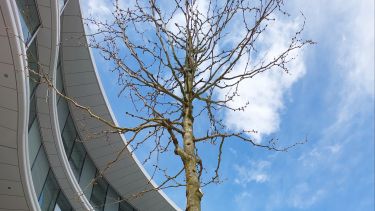PGR Community
Our thriving community of postgraduate and doctoral students focuses around two communities; Critical Disability Studies and Science and Technology Studies

Critical Disability Studies PGR
A reading group made up of critical disability studies scholars (including PGR’s and ECR’s) that meets up around once a month to discuss different topics in and around critical disability studies. The papers are chosen by the group, with one member taking the lead on each session providing questions and discussion around different research themes including methodology, ethics, positionality and theory. We have also had some guest speakers come in to discuss their papers with the group.
Previous sessions:
1st Session: Goodley, D. (2014) Dis/Ability theorising disablism and ableism (Chapter 1)
Questions we considered:
What are your main thoughts on the reading, and the concepts of medicalisation and individualisation of disability?
What are your thoughts about the social model of disability, and Colin and Barnes' arguments against the critiques they faced towards the concept.
And finally, do you see any overarching similarities or differences between the cultural theories of disability outlined in the end of the chapter?
2nd Session: Budworth, P., 2023. Care, comfort, and capacity: The importance of being flexible in research with Disabled and chronically ill people. SSM-Qualitative Research in Health, 4, p.100352.
Questions we considered:
To what extent did COVID-19 influence the implementation of Crip Time within Budworth’s methodology? Would this still have occurred if COVID never happened?
Are there times and/or occasions where Crip Time may not be the most advantageous method when collecting data in disability research?
Do asynchronous methods compromise the ability to effectively answer the research questions as there is the possibility of misinterpretation/misunderstanding if answered away from the researcher?
What else can be done to increase the awareness and uptake of Crip Time and flexible methodology and to extend it beyond the realms of disability studies research?
As researchers, can we ever be too flexible?
3rd Session: Ktenidis, A. (in print) Ethical Complexities of Having Difficult Research Conversations: A Reflective Account And A Cautionary Tale On Speaking For ‘Others’
Members:
Antonios Ktendis
https://www.sheffield.ac.uk/education/people/academic/antonios-ktenidis-0
Ayman O Alhawiti
Bev Enion: https://sites.google.com/sheffield.ac.uk/schoolofeducationphd/names-a-f/bev-enion
Charlie Grosset
Charlotte Clarke:
https://sites.google.com/sheffield.ac.uk/schoolofeducationphd/names-a-f/charlotte-clarke
Hsiao-Fang Chang
Louise Cooper
https://sites.google.com/sheffield.ac.uk/schoolofeducationphd/names-a-f/louise-cooper
Sally Thomas
Tom Ryan:
https://sites.google.com/sheffield.ac.uk/schoolofeducationphd/names-q-u/tom-ryan
Turana Abdullayeva
Yanan Yu

Our work
How we understand being ‘human’ differs between disciplines and has changed radically over time. We are living in an age marked by rapid growth in knowledge about the human body and brain, and new technologies with the potential to change them.
